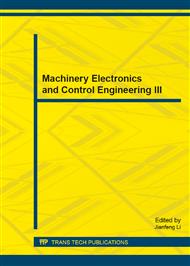p.91
p.99
p.103
p.108
p.112
p.116
p.120
p.125
p.129
Study on the Effect of the Evaporator Area on the Heat Transfer Performance in the Gravity Feed Liquid Refrigeration System
Abstract:
In order to study the effect on heat transfer performance of evaporator in the gravity feed liquid refrigeration system the different evaporator area, the simulation procedure is worked out. The procedure uses the visual basic language. The procedure can figure out the heat transfer coefficient and the temperature difference in different evaporator area and evaporating temperature with the required refrigerating capacity. Through simulation calculation, when the area is 80% of the original design area of evaporator, the evaporator of the heat transfer coefficient and heat transfer temperature difference is the most reasonable and the evaporator of the refrigerating capacity can meet the requirements of cold storage. The program provides the reliable data for the gravity feed liquid cooling system optimization.
Info:
Periodical:
Pages:
112-115
DOI:
Citation:
Online since:
December 2013
Authors:
Price:
Сopyright:
© 2014 Trans Tech Publications Ltd. All Rights Reserved
Share:
Citation:


